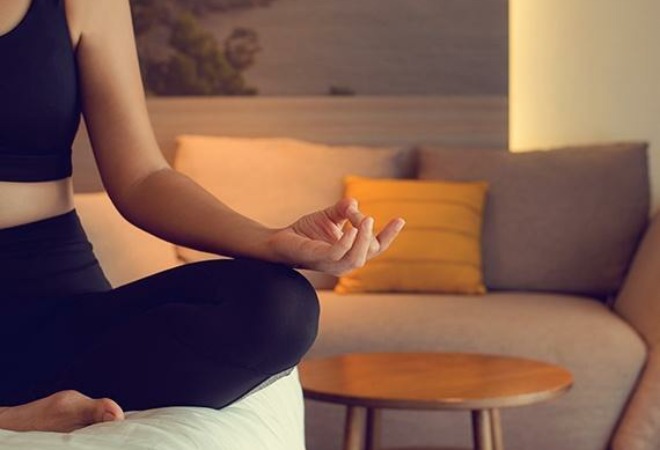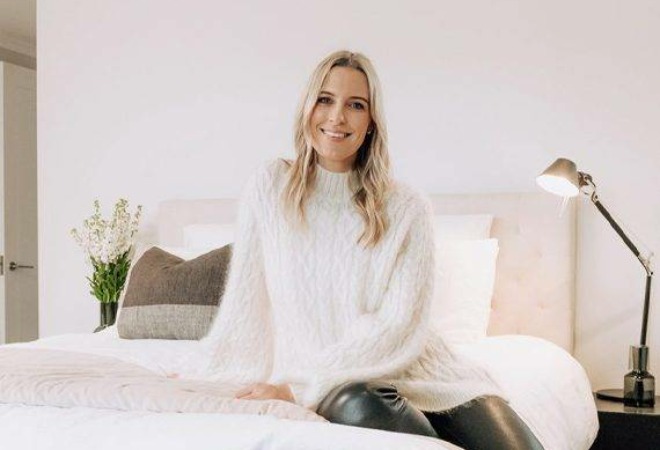Follow these six easy steps to create a great sleep routine and set yourself up for sleep success!
We sat down and spoke to Celine Wallace, an esteemed wellness expert, ayurvedic practitioner and yoga therapist, to find out her insights about creating successful sleep routines. Celine has helped many people create daily habits and wellness rituals that help them thrive.
Sleep is an integral part of our lives and conditions how we think and feel. People often reflect, ‘what’s the best way to restart a routine after the holidays’ or ‘how do we get to kids to have enough sleep’? Although our lives are different, they are all built on the same premise for good health. Sleep is one of the essential components of this, and as you know, the difference between a good and bad night’s sleep, can have a big impact on your day.
To help you find an evening routine that works for you, it’s important to understand what is needed for a good night’s sleep. Follow the six easy steps below to help create a successful sleep routine.
1.
Set your circadian rhythm
The human body follows an internal timekeeping system known as a circadian clock. This internal clock regulates the body’s natural ‘circadian rhythm’, which is your daily cycles of: sleep and wakefulness, hunger and digestion, hormonal activity, and other bodily functions. This internal clock is activated by bright light, so if you stay inside most of the day, or work from an office, you may have trouble falling asleep at night. This is because your body doesn’t release the necessary hormones throughout the day, due to lack of light, so when night begins, it has only received a portion of the bright daylight it needs – so you may have sleep difficulties or even insomnia as a result of this. Light exposure early in the day is essential to set your natural sleep cycle, so when the sun rises in the morning, the body produces cortisol, which makes us feel refreshed and alert. After waking, make sure to experience daylight as early as possible, to help get the best night’s sleep ahead.
2.
Help your melatonin production
Melatonin is our body’s natural sleep hormone, created in the brain and the stomach. How much melatonin you produce at night will dictate the quality of your sleep and how quickly you fall asleep. Since 400x more melatonin is made in the gut than in the brain (pineal gland), ensure an early mealtime. Our bodies are intelligent organisms, but they struggle to multi-task, so if your body is digesting food, it will release digestive enzymes to break down the food and not make melatonin. So, if you eat late at night, the body can’t produce the necessary sleep hormones for you to fall asleep easily, because it’s busy digesting dinner. Set an early mealtime for 3-4 hours before bedtime, so your body can digest, rest, then release sleep hormones efficiently.
3.
Set a sleep schedule
Like an operating machine, your body loves routine, so best to establish a consistent wake-up and sleep time. This helps set your circadian rhythm – your natural body wake and sleep cycle. It cleverly trains the mind and body of when to wake and be alert and when to slow down at the end of the day. Of course, your sleep rhythm will evolve and change with age. For example, older people tend to wake up and go to sleep earlier than younger people. While babies sleep in multiple phases throughout the day and night. Structure is key for your body to find its rhythm, and even if you can’t fall asleep at your desired time, make sure to set your alarm and wake up at the set time, which will keep you on track and your body will eventually adapt to its routine.
4.
LOSE THE ELECTRONICS
Blue light is a mitigating factor affecting your ability to sleep at night. The blue light emitted by your mobile, laptop, or other electronic device, restrains your production of melatonin (the hormone that controls your sleep-wake cycle) and makes it even more challenging to fall asleep and wake up. It is best to have no screens for at least an hour (ideally more) either side of bedtime and waking. This allows your body to set its natural circadian rhythm for the day. Use this non-device time to wind down by reading a book or writing in a journal (at night) or going for a walk or having a cup of tea outside (in the morning).
5.
TRY SOME SUPPLEMENT SUPPORT
During the day, our bodies are constantly under stress and experiencing different situations that release cortisol (our body’s stress hormone). At night, as we wind down, it can be challenging for our bodies to know that the day is ending, especially if it’s been busy with work or the kids. Start incorporating a stress-reducing adaptogen, which helps your body to balance its adrenaline and cortisol levels, so you can slow down and calm the nervous system.
6.
MAKE YOUR BEDROOM YOUR HAVEN
Your bedroom should be relaxing space, your place to rest and let go of the day. Create a calming environment, with plants, candles, books and low lighting. Relax in your comfortable and supportive Sealy Posturepedic bed, ready for a good night’s sleep ahead.

Try integrating these six steps to help create a successful sleep routine. Whether you’re single, have a big family, or it’s you and your partner, try to establish a sleep routine that works for your lifestyle and schedule. Consistency is key. Allow time and use the same system for 28 days, as this allows the brain and body to create pattern.
The importance of sleep and setting yourself up for a successful evening routine is a great way to get back into the year; it’s also important to maintain this throughout the year. Ease into your sleep journey with something to look forward to, like a new supportive, comfortable bed. Try the Sealy bed selector tool to help you find the bed most suited for your sleep profile.
Ensure you get the sleep you need, night after night. Simply try our Bed Selector to find the best product for you.




